|
One major decision authors need to make before trying to get their book published is whether to go through the traditional process of publishing, or to self-publish. This decision not only drastically alters the publishing process, but also determines your margins of profit further down the road.
What Is the Difference? Though the clue is in the name, self-publishing is the process of getting your book published without the aid of a publishing company. The main difference is if the rights and royalties to your book belong to you alone, you are a self-published author. If the rights and royalties of your work belong to a publishing company, then the book is traditionally published. Why Are Authors Moving Away From Traditional Publishing? Though self-publishing is often inaccurately portrayed as less prestigious, more and more authors are choosing to self-publish. One reason for this is the lengthy and difficult process of liasing with publishing companies. This route entails the author being represented by a book agent who contacts publishing companies on their behalf. The author writes a book proposal which the agent sends around to publishers, and if there is interest, the author must prepare a pitch. If the pitch is successful, the company will offer them a deal. However, publishers tend to only offer deals if there is an existing audience guaranteed to buy the book. Traditional publishing is best suited for established authors or celebrities who have a following that are already interested in reading their book. What Are the Pros and Cons of Self-Publishing? Self-publishing offers the author more control over book design and content, and a quicker timeline for getting it to market. While traditional publishing can take years, self-published authors could get their book on the market in a matter of months. The downside of doing it yourself is that it is time consuming, and learning the process can be confusing and stressful. On the other hand, traditional publishing is more likely to get your book into shops, and they have a wealth of knowledge and experience that new authors simply do not. However, one key advantage to self-publishing is that authors have ownership over the rights and royalties of the book. This can mean more profit for the author if the book does well. How Can You Make Self-Publishing Profitable? There are several things to consider in order to make a self-published book profitable--the first being its appearance. We all know not to judge a book by its cover, but unfortunately this is exactly how the market works. For physical books you need to match the visual standard of traditionally published books, prioritising the front cover and the blurb. Pricing your book is also a key consideration. You need to make it cheap enough to attract readers, but still allow for profit without making it look like it isn’t worth reading. Finally, marketing strategies can mean the world in determining the profitability of a book. Usually with traditional publishing the company expects the author to do most of the marketing anyhow, so this will need to be done regardless of your chosen publishing route. You therefore need to be competent at marketing your book to the right audiences in order to make a profit. In conclusion, the royalty disparity between traditional and self-publishing means it can definitely be more profitable to self-publish, and far quicker and easier too. However, time is money, and self-publishing can be a very time consuming process for new authors. Learning and managing the process effectively is key to both book success and profit.
0 Comments
Your comment will be posted after it is approved.
Leave a Reply. |
Archives
April 2024
Categories
All
|


 RSS Feed
RSS Feed

